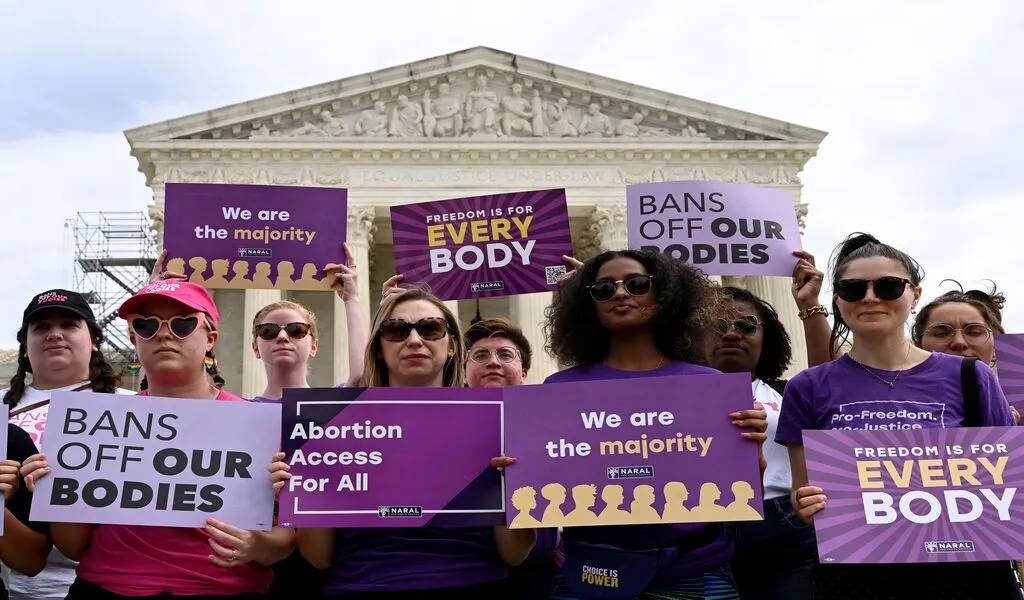Updating UK Abortion Laws – The recent sentencing of Carla Foster for administering poison with intent to procure a miscarriage has ignited a wave of outrage among those advocating for women’s right to control their bodies.
Foster, a mother of three, terminated her pregnancy late during the pandemic lockdown when medical services were disrupted. Despite her circumstances and the judge’s acceptance of her mental anguish, she has been sentenced to two years and four months in prison.
Outdated Legislation and the Need for Reform in Abortion Laws
Abortion has long been a pivotal issue in discussions about women’s liberation. The concept of “A Woman’s Right to Choose” recognizes that women’s reproductive capacities have historically been a significant cause of their subjugation.
Unwanted pregnancies have carried a stigma for centuries, whether before or outside of marriage or due to rape. The catastrophic consequences of illegal abortions are well-documented. However, while immediate reform is being called for, it is crucial to consider the potential negative repercussions.
A fundamental issue in Foster’s case is the issue of time limits. If the 10-week deadline for drug-induced termination has passed, the Abortion Act of 1967 comes into effect.
This requires a surgical procedure and the involvement of two medical practitioners. After 24 weeks, abortion is illegal in most circumstances and is exceedingly rare, with only 236 such abortions recorded in 2020.
Many, including Conservative MP Caroline Nokes, have raised concerns about the outdated legislation used to prosecute Foster.
She was charged under the 1861 Offences Against the Person Act, which remained in effect even after the partial legalization of abortion in 1967. This older act states that individuals who use drugs or other instruments to cause an abortion can face life imprisonment.
It is understandable to question whether a country should continue relying on legislation that dates back centuries.
However, even if prosecuting and imprisoning a distressed mother like Foster is deemed unnecessary, there is a strong argument against allowing anyone to evade criminal responsibility for the death of a viable fetus capable of surviving outside the womb.
In Foster’s case, the judge highlighted the lack of sentencing guidelines for such situations. Establishing guidelines is imperative, emphasizing that imprisonment should be a rarity.
Very few women choose to terminate a late pregnancy without being in despair or experiencing mental health issues.
Additionally, the director of public prosecutions and the Crown Prosecution Service should provide guidelines regarding when prosecutions should be pursued, similar to the guidance for family members accompanying patients to Dignitas.
At some point, both Section 58 of the Offences Against the Person Act and the Abortion Act should be repealed, and a new law centered around a woman’s right to abortion should be implemented.
This new legislation should include limitations in cases where the fetus is in the final stages of gestation.
However, embarking on new legislation may be unwise given the current climate of raging culture wars and the coarsening of sensitive subjects into polarized debates.
Medical experts have warned about invasive and unjust investigations into late miscarriages, raising concerns about the potential consequences of a campaign for reform. There is a fear that it could lead to a reduction rather than expanded rights.
The United States serves as a cautionary example, as the constitutional right to abortion was overturned last year, sparking a viciously politicized debate.
Until now, such challenges have not been prevalent in Britain. However, as our political landscape increasingly leans toward populism, updating the existing legislation could be twisted into a narrative of “the right to kill babies.”
The well-funded American religious right is eager to extend its influence globally, and if we are not cautious, we may find ourselves with fewer rights than we bargained for.
Finding the delicate balance in this issue is crucial. While there is a clear need for legal reform to address outdated laws and clarify late pregnancy terminations, it is equally important to ensure that criminal responsibility is upheld in cases involving viable fetuses.
Striking the right balance between safeguarding women’s reproductive autonomy and protecting the potential life of a fetus requires thoughtful consideration and comprehensive guidelines.
In conclusion, the sentencing of Carla Foster for administering poison with the intent to procure a miscarriage has reignited the debate surrounding women’s reproductive rights.
The case highlights the urgency for updating outdated legislation, clarifying legal parameters, and establishing guidelines for sentencing and prosecution.
While the call for reform is important, we must tread carefully to avoid the pitfalls of polarized debates and potential backlash. By striving for a balanced approach, we can protect women’s rights while respecting the value of viable fetal life.






